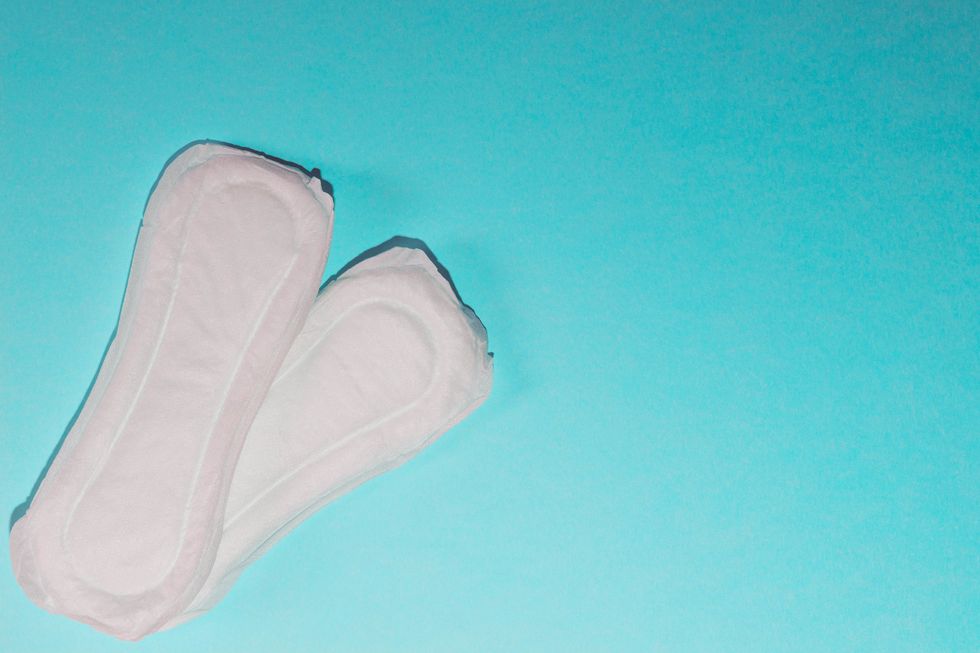No one is envious of a woman who just started her period. It's universally understood that her "time of the month" is less than enjoyable for all parties involved, resulting in various symptoms causing hellish physical and emotional trials. A visit from Aunt Flo means obstacles in a woman's life that men could never actually fathom, the only saving grace being one crucial friend in a woman's bathroom cabinet — her feminine hygiene products.
In order for women to avoid halting their lives for the days of the month surrounding their cycle, they rely on the resources at their disposal. Whether you're a tampon or pad gal, you know that without your trusty sidekick life would be made quite a bit harder. Going without it? Unfathomable. Trying a new brand? Risky. Being actually injured from the very product that is supposed to make a difficult aspect of your life easier? WHAT?!
Always, a popular brand of sanitary pad, has been facing backlash thanks to a movement on Twitter regarding #MyAlwaysExperience. Women in Kenya are sharing stories of rashes, burns, and overall "oh hell no" discomfort from the products they once trusted during their time of the month. While Always just made a hugely inclusive statement in removing the female gender symbol from their products, their product is appearing to cause physical repercussions on women they reach.
Kenyan women are using the Twitter hashtag #MyAlwaysExperience to express outrage over the Always brand of sanitary pads, which they say causes rashes, burns and discomfort.
The #MyAlwaysExperience first started in February of this last year. Always responded to the online movement in March.
Always' statement was met with angry stories of women who clearly had been scarred by the Always product they had purchased. Feminine hygiene products are already considered a luxury in many parts of world, the phrase "period poverty" coined for this very reason. In many regions, Kenya included, many women miss school or work because they don't have access to clean sanitary products while they are on their period. Now the percentage of women who DO have access to these resources are unsure whether or not they can be trusted.
It's clear that women in lower economical standings are the sacrificial lamb for companies like Always, who understand their convenience and need but don't feel morally obligated to be truly as helpful as they have the ability to be. Ironically, this is not the first time we've heard of Always being less-than-trustworthy with what they expect women to put in their bodies. They have undergone private testing from women who called them on their crap, and the results did not do them any favors — they were found to have Styrene, Chloromethane, Chloroethane, Chloroform, and Acetone in the products they sold on shelves in the U.S.
SEE ALSO: 6 Of The Most Common Stigmas Attached to Menstruation Around The World
Women worldwide have become increasingly aware of what is used to make their monthly hygiene products. Female hygiene products are not held to the same standard of FDA disclosure as other products — sketchy, right? That being said, it would be too easy for companies who want to take the cheaper path to do so, without having to honestly tell their consumers how they're being impacted. Low blow? Absolutely. Putting money into pockets of corporations? You got it.
Now that we're on the same page of female hygiene products possibly scamming us out of health and happiness...
What's a girl to do?
First things first, figure out what's in your tampons and pads. Avoid any products that contain a fragrance and make a note of this list of other chemicals you don't need in your life. There are organic options that work hard to avoid cheap toxins.
Once you're good to go on the homefront, take some time to learn about government regulations regarding ingredient disclosure on hygiene products. There are women with the power to make things happen who could use your support.
While you're researching, pay attention to the organizations that are taking the mission to serve women in lower-income communities seriously by providing them with non-toxic products. Helping Women Period is an example of this — you are able to donate products yourself, provide financial support, and volunteer at events.
Ultimately, women's sanitary products need to be put under the microscope and held accountable in ALL aspects. Haven't you heard? Women — in every country — are multi-tasking like champs. They need a hygiene product that can keep up with the rest of their life.


























